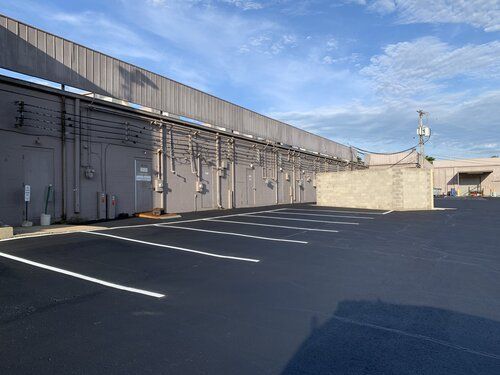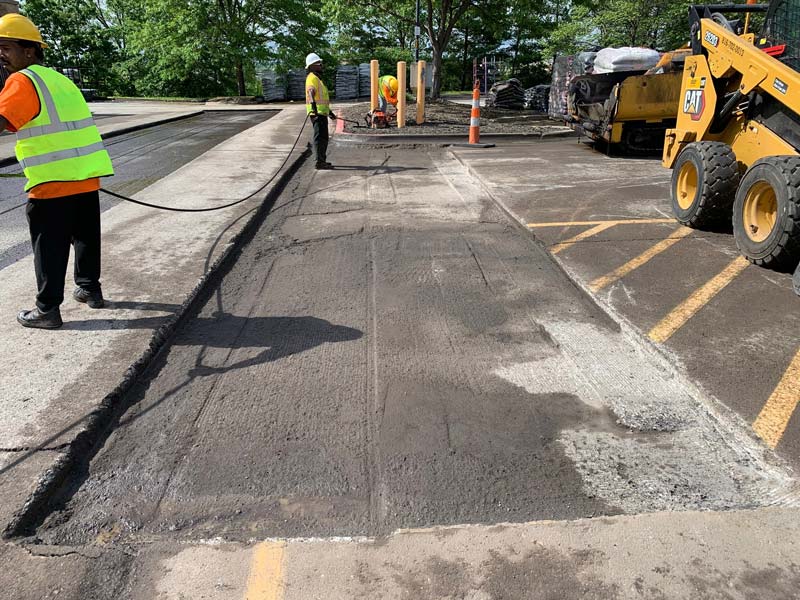Introduction
Hot mix asphalt (HMA) paving stands as a cornerstone in the world of civil engineering and construction, especially when it comes to creating durable surfaces for roads, driveways, and parking lots. This article delves deep into the advantages and applications of hot mix asphalt paving, aiming to provide comprehensive insights that cater to homeowners, contractors, and businesses alike. By understanding its myriad benefits, you can make informed decisions about your paving needs.
Hot Mix Asphalt Paving: Advantages and Applications
Hot mix asphalt sealcoating asphalt paving utilizes a combination of aggregates, bitumen, and various additives to create a robust surface. What sets it apart is its ability to withstand heavy loads while maintaining a smooth finish.
Understanding Hot Mix Asphalt
What is Hot Mix Asphalt?
Hot mix asphalt consists of a mixture of aggregates (stone, sand, or gravel) combined with liquid asphalt cement. The heating process occurs at temperatures between 300°F and 350°F before it's laid down on roadways or driveways.
Types of Hot Mix Asphalt
There are several types of hot mix asphalt:
Dense-Graded Mixes: Ideal for most pavements. Open-Graded Mixes: Provides good drainage. Stone Matrix Asphalt (SMA): Offers enhanced durability. Warm Mix Asphalt: Lower production temperatures for reduced emissions.Advantages of Hot Mix Asphalt Paving
Durability and Longevity
One significant advantage is the inherent durability of hot mix asphalt. When properly installed by experienced asphalt paving contractors, a well-maintained asphalt surface can last up to 20 years or more.
Cost-Effectiveness
Compared to other materials like concrete, asphalt paving cost per square foot is typically lower. Moreover, maintenance costs tend to be less for asphalt surfaces.
Quick Installation Time
Asphalt paving services can complete projects quicker than many alternatives due to rapid setting times and ease of installation.

Applications of Hot Mix Asphalt Paving
Residential Driveways
Many homeowners opt for hot mix asphalt for their residential driveways because it’s cost-effective and durable.
Asphalt Driveway Installation Process
Site preparation Sub-base installation Laying the hot mix CompactionCommercial Parking Lots
Parking lot paving companies often use hot mix asphalt due to its ability to handle heavy traffic volumes while maintaining a smooth surface that minimizes wear on vehicles.
Parking Lot Striping Services
Proper striping ensures safety and organization within commercial lots:
- ADA compliant parking lot striping Fire lane marking Custom numbering and lettering
Maintenance Practices for Asphalt Surfaces
Sealcoating Importance
Sealcoating offers an additional layer of protection against UV rays, water damage, and chemical spills.
Benefits of Sealcoating
- Extends pavement life Enhances appearance Provides resistance against oil stains
Regular Maintenance Tasks
Crack sealing Patching potholes Regular inspectionsCost Considerations in Hot Mix Asphalt Paving
Factors Influencing Asphalt Paving Cost
Several factors determine pricing:
Project size Material quality Location AccessibilityAsphalt Driveway Cost Calculator
Using an online calculator can provide estimates based on these variables.
Comparative Analysis: Asphalt vs Concrete Driveways
When deciding between an asphalt driveway vs concrete driveway, consider the following:
| Factor | Asphalt Driveway | Concrete Driveway | |-----------------------------|---------------------------------|------------------------------| | Initial Cost | asphalt paving Lower | Higher | | Lifespan | 15-20 years | 30+ years | | Maintenance | Easier | More challenging | | Repairability | Simple | Complex |

FAQs About Hot Mix Asphalt Paving
1. How long does an asphalt driveway last?
An asphalt driveway can last anywhere from 15 to 20 years with proper maintenance.
2. What are common issues with asphalt driveways?
Common issues include cracking, potholes, and fading due to UV exposure.
3. Is sealcoating necessary?
While not mandatory, sealcoating significantly extends the life of your pavement by providing protective barriers against elements.
4. How much does it cost to install a new asphalt driveway?
The average cost ranges from $3-$4 per square foot but varies based on location and project specifics.
5. Can I pave over my existing driveway?
Yes! An existing driveway can often be resurfaced if it's still structurally sound.
6. What should I do if my driveway has cracks?
Crack sealing is essential; it prevents further damage by keeping water from infiltrating beneath the surface.
Conclusion
In summary, hot mix asphalt paving is not only advantageous for its cost-effectiveness but also for its durability and versatility across various applications—from residential driveways to commercial parking lots. Whether you're considering new installations or seeking maintenance services like sealcoating or crack repairs, understanding the nuances of HMA will help you make informed choices that enhance your property’s functionality while adhering to budget constraints.
Investing in high-quality hot mix asphalt from reputable paving companies guarantees lasting results that benefit both aesthetics and performance in your infrastructure projects!